7 Natural Remedies to Calm Your Anxious Dog (That Actually Work)

The Complete Guide to Calming Supplements for Dogs: Natural Solutions for Canine Anxiety
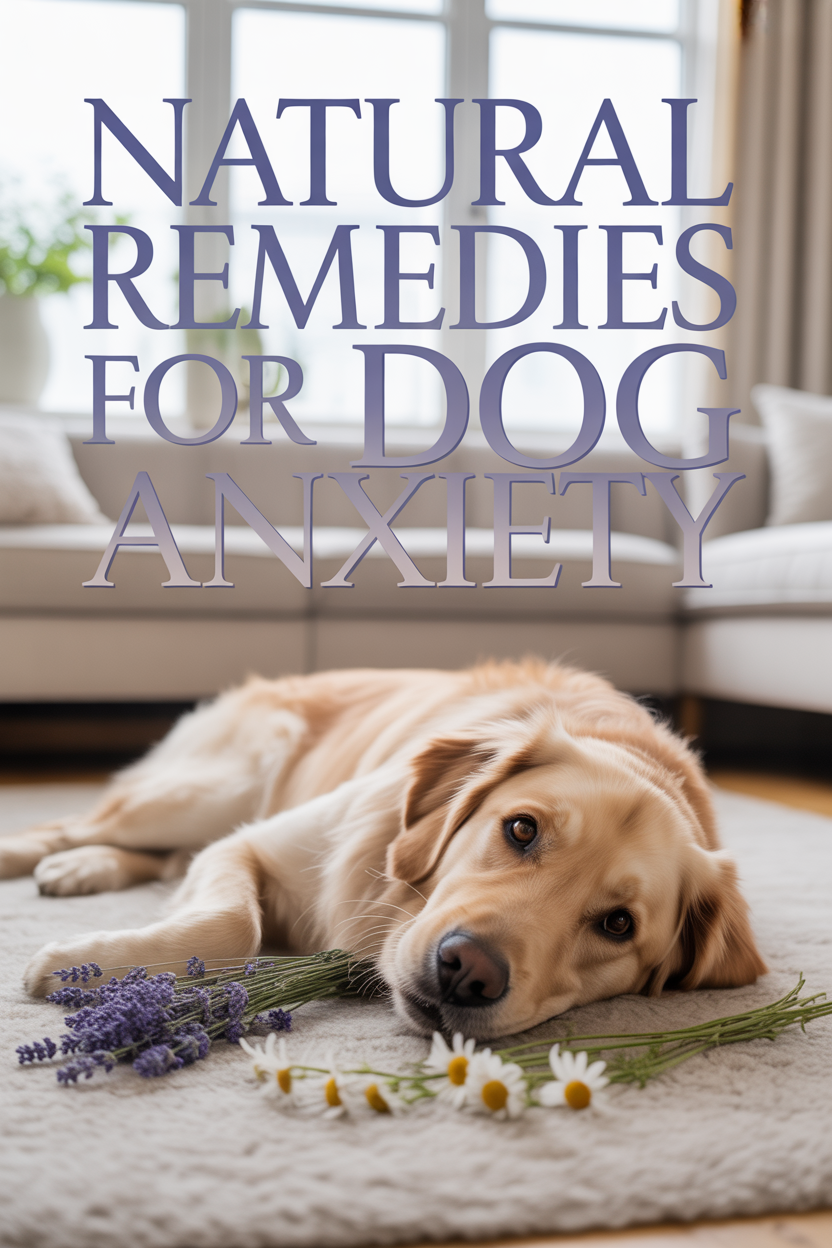
Is your furry friend bouncing off the walls with anxiety? Don’t worry – you’re not the only one with a four-legged stress ball at home! Many of us dog parents find ourselves Googling “how to calm down my crazy canine” at 3 AM while our pups pace around during thunderstorms. Good news though! There’s a whole world of calming supplements for dogs that can help turn your nervous Nellie into a chilled-out companion. Let’s dive into everything you need to know about helping your anxious pooch find their inner zen!
Understanding Anxiety in Dogs: Signs and Triggers
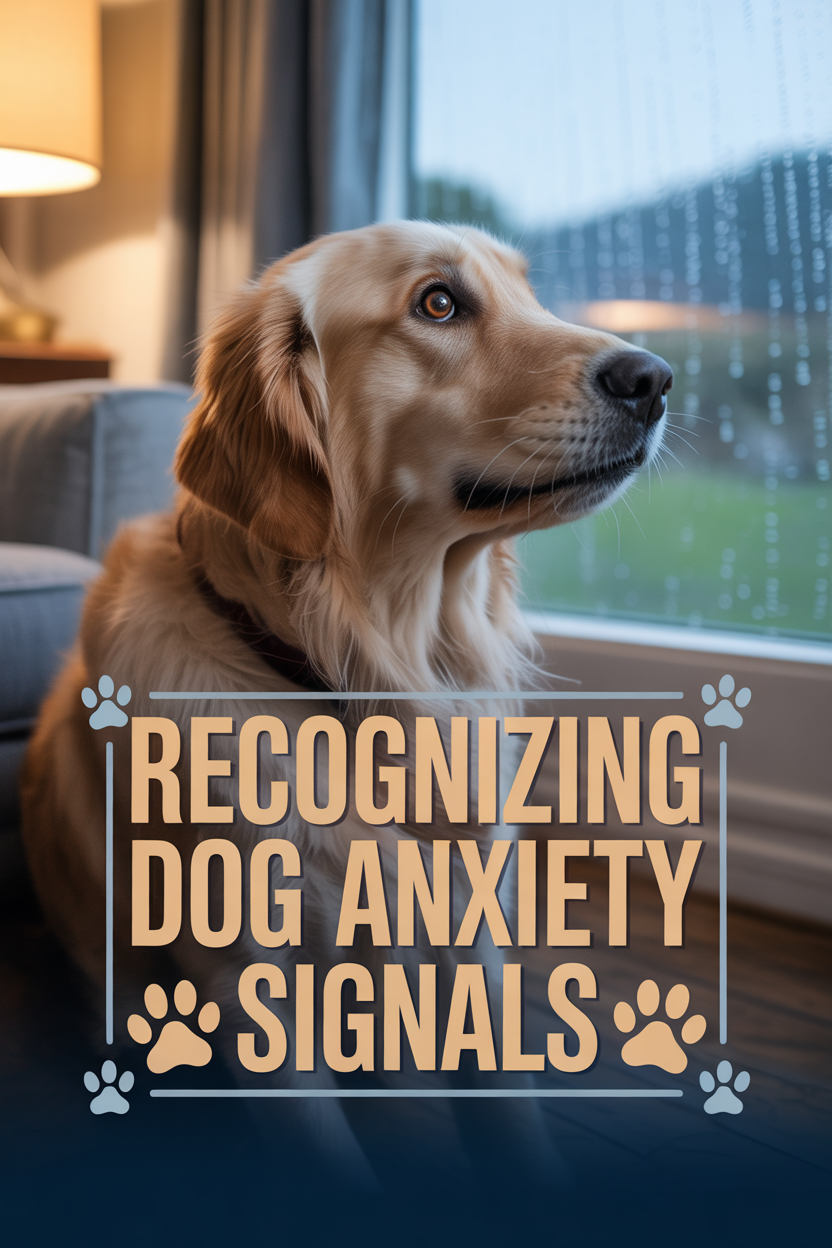
Just like humans who stress-eat ice cream during challenging times, our canine companions show anxiety in various ways. If your dog is destructive, trembling, panting excessively, or turning your favorite shoes into chew toys – you might have an anxious pup on your hands.
Common triggers for dog anxiety include:
- Separation from you
- Loud noises (thunder, fireworks, vacuum cleaners)
- Changes in environment
- Unfamiliar people or animals
- Car rides
- Veterinary visits
- Past trauma
Every dog has their own unique anxiety profile, so observing your particular pooch’s reactions is key when considering which calming supplements might help them best.
How Stress Affects Your Dog’s Health and Behavior

Chronic stress for your dog isn’t just about apologizing to neighbors for late-night barking or replacing chewed-up furniture. Long-term anxiety can impact your dog’s health in serious ways:
- Weakened immune system
- Digestive problems
- Decreased appetite
- Skin problems and excessive shedding
- Increased susceptibility to illness
- General depression
- Family tension
Finding the right calming supplements isn’t just about peaceful car rides – it’s about keeping your furry best friend healthy and happy for years to come.
Natural Calming Supplements: Ingredients to Look For
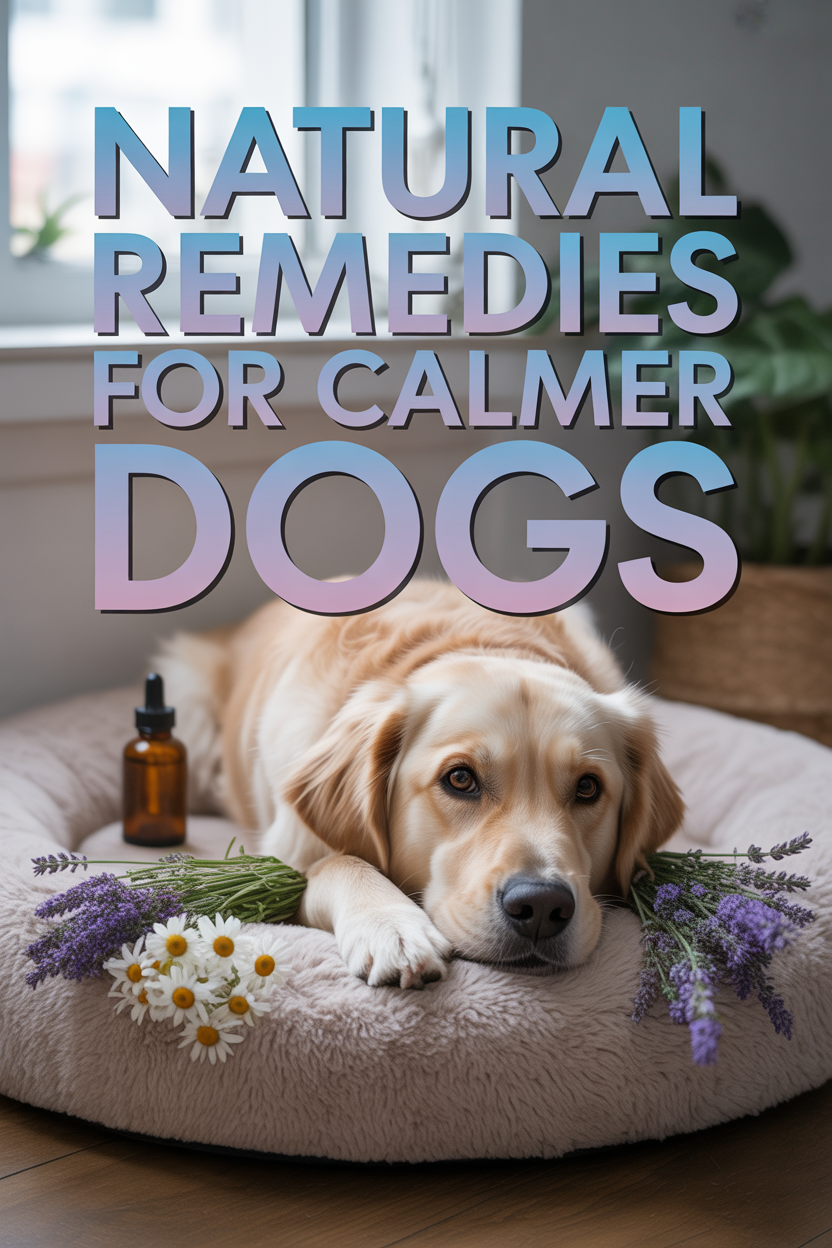
When shopping for anxiety solutions for your dog, these key ingredients are worth considering:
- L-Theanine: An amino acid from green tea that calms without causing drowsiness
- CBD oil: Helps reduce anxiety without psychoactive effects
- Chamomile: A gentle herb that works wonders for nervous pups
- Valerian root: A natural remedy that helps reduce tension
- Melatonin: Helps regulate sleep and reduces anxiety
- Tryptophan: Helps produce serotonin, the “happy” brain chemical
- Passionflower: Promotes relaxation in anxious dogs
- Magnesium: Supports nervous system function
The most effective supplements often contain a combination of these ingredients working together to help your anxious pup find peace.
L-Theanine and Its Benefits for Anxious Dogs

L-Theanine is an exceptional anxiety-fighting ingredient that works by boosting feel-good brain chemicals like GABA, serotonin, and dopamine – creating a calming effect in your dog’s brain.
The benefits of L-Theanine for your nervous pup include:
- Relaxation without sedation
- Maintained mental alertness while reducing stress
- Improved focus during training
- Relatively quick onset (often within 30-60 minutes)
- Fewer side effects than prescription medications
Look for supplements with Suntheanine®, a premium version of L-Theanine that’s been specifically tested for safety and effectiveness in reducing anxiety in dogs.
CBD Oil: Research and Effectiveness for Canine Anxiety
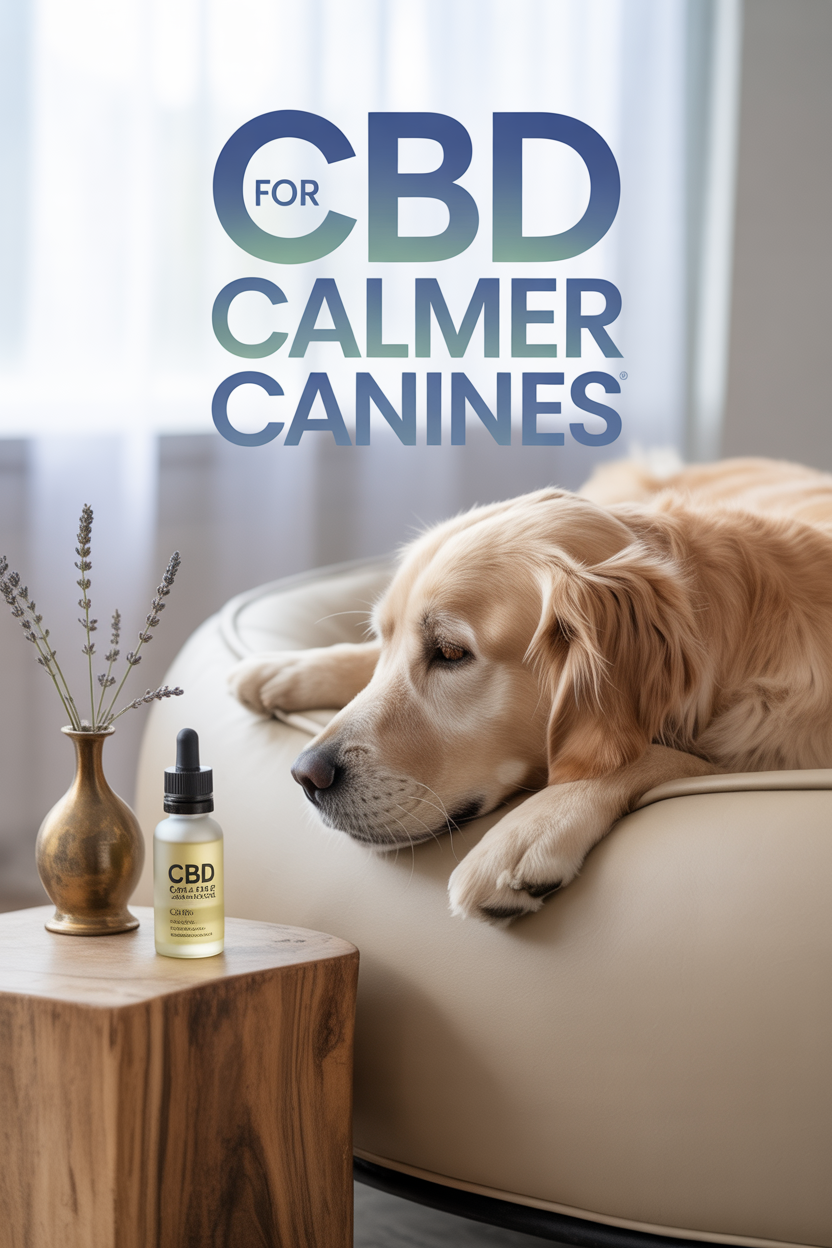
CBD oil has gained popularity as a natural anxiety solution. It’s non-psychoactive but interacts with systems that regulate mood, pain, and immune function in your dog’s body.
Research suggests CBD may help your nervous pup with:
- Reducing fear responses to thunderstorms and fireworks
- Moderating stress responses
- Easing pain, which can contribute to anxiety
- Improving sleep quality
When choosing CBD calming supplements, look for:
- Full-spectrum or broad-spectrum formulas
- Products specifically formulated for pets
- Third-party testing results
- Clear dosing instructions based on weight
- Organic hemp sources
While CBD shows promise for anxiety management, research is still developing and it’s not officially FDA-approved for pets yet. Many pet owners report positive results, though individual responses may vary.
Herbal Solutions: Chamomile, Valerian Root, and More

Herbs have been used for centuries to calm both humans and animals. Today, they’re available in dog-friendly formulations that make administration easy.
Chamomile contains apigenin, which binds to the same brain receptors as some anti-anxiety medications, creating a gentle calming effect. It’s ideal for mildly anxious dogs and also helps with stress-related digestive issues.
Valerian root increases GABA in the brain, which naturally inhibits over-excited nerve cells. It’s excellent for dogs with noise phobias or separation anxiety. Some studies suggest it works similarly to prescription medications but with fewer side effects.
Other beneficial herbs include:
- Passionflower: Enhances GABA and helps dogs who struggle to settle down
- Lemon balm: Promotes relaxation and reduces stress hormones
- Ashwagandha: An adaptogen that helps dogs manage stress more effectively
- Ginger: Ideal for dogs whose anxiety manifests with digestive upset
These herbs typically work best in combination rather than as single ingredients for managing your dog’s anxiety.
Melatonin for Dog Anxiety: Dosage and Considerations
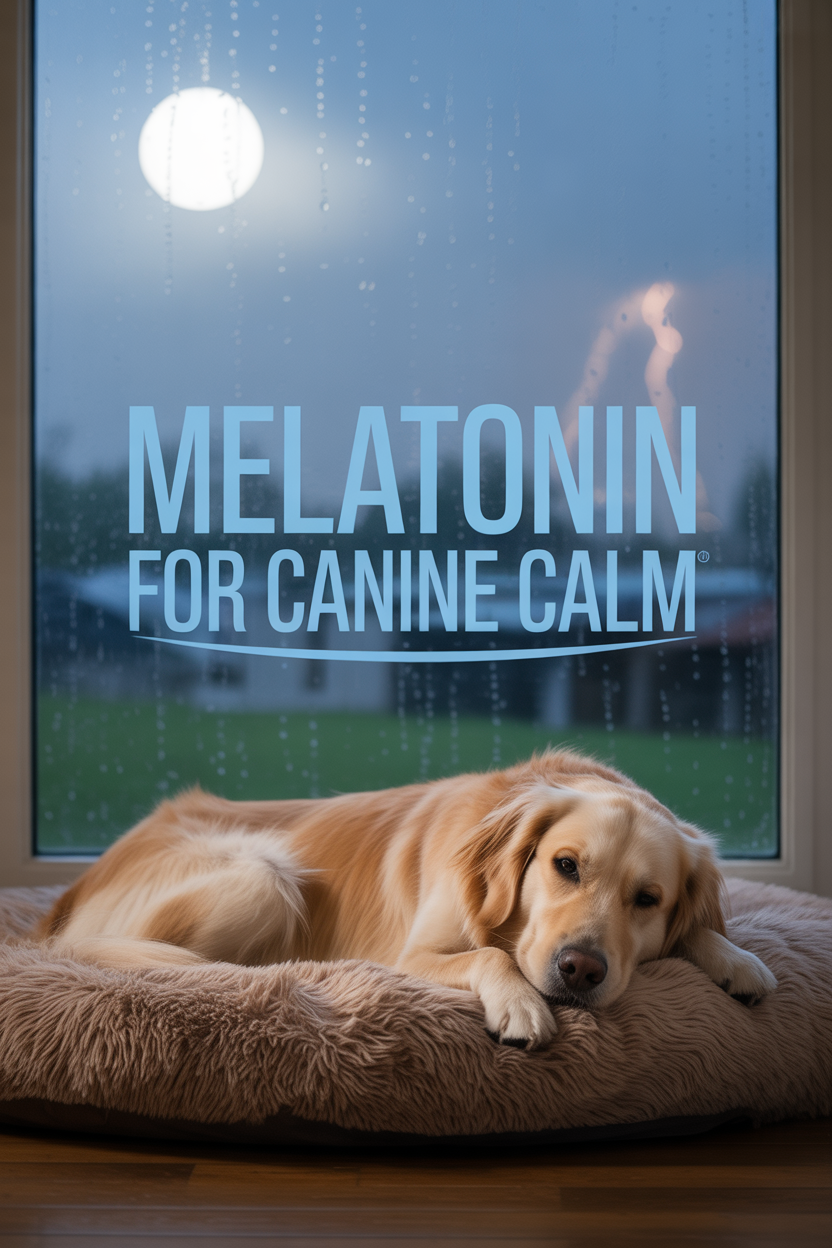
Melatonin, a naturally occurring hormone that regulates sleep, can also help your dog remain calm during stressful situations.
For dogs, melatonin can be beneficial for:
- Thunder and firework phobias
- Travel stress
- Separation anxiety
- Nighttime restlessness
General dosage guidelines include:
- Dogs under 10 lbs: 1 mg
- Dogs 10-25 lbs: 1.5 mg
- Dogs 26-100 lbs: 3 mg
- Dogs over 100 lbs: 3-6 mg
Always consult with your veterinarian before giving melatonin, especially if your dog has existing health conditions. For optimal results, administer 30-60 minutes before anticipated stressful events.
Tryptophan Supplements: How They Work in Dogs
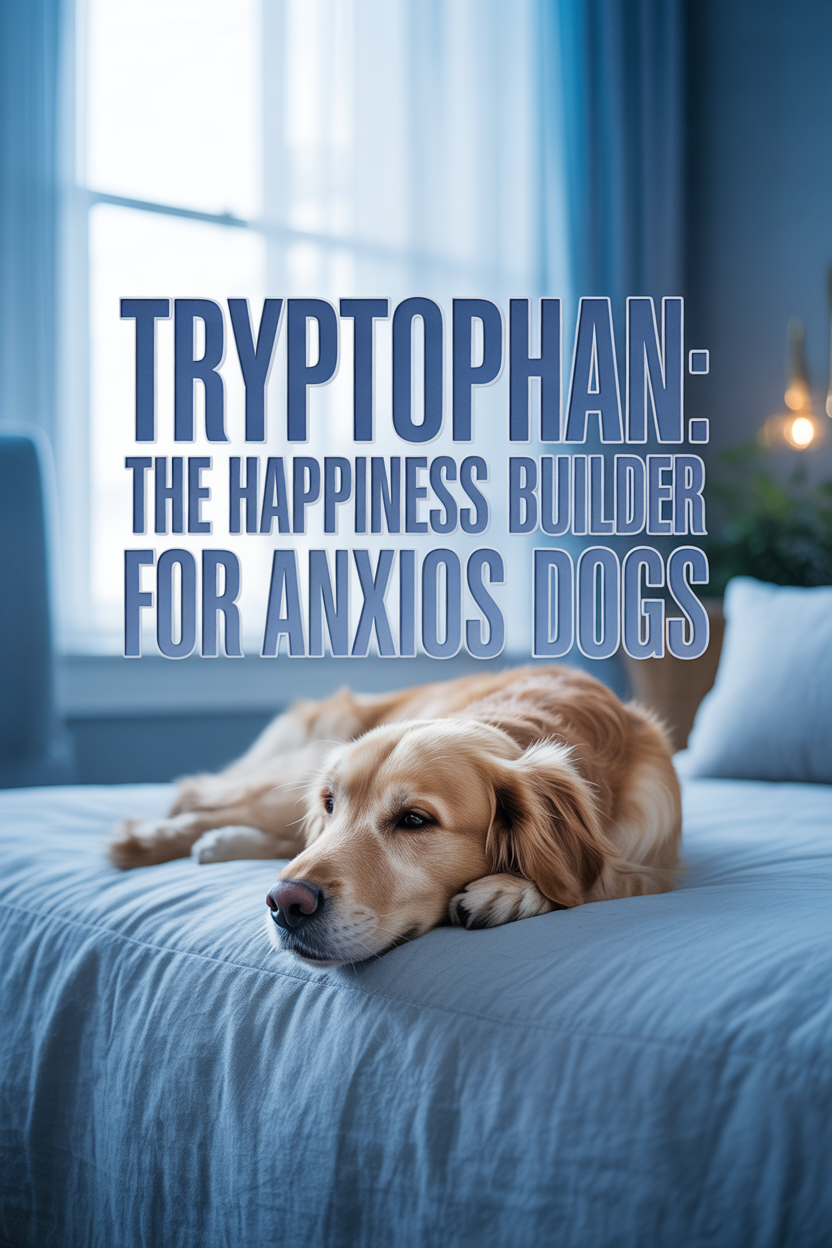
Tryptophan is an essential amino acid that serves as a building block for serotonin, the “happiness hormone.” Since dogs can’t produce their own tryptophan, they need to get it from food or supplements.
For anxious dogs, tryptophan supplements can:
- Increase serotonin production
- Help maintain emotional balance
- Reduce anxiety-driven aggression
- Support better sleep patterns
Unlike some faster-acting supplements, tryptophan works best when given regularly to build up serotonin levels. For maximum effectiveness, look for tryptophan supplements combined with carbohydrates and vitamin B6, which help your dog’s body convert tryptophan into serotonin more efficiently.
Pheromone-Based Calming Products
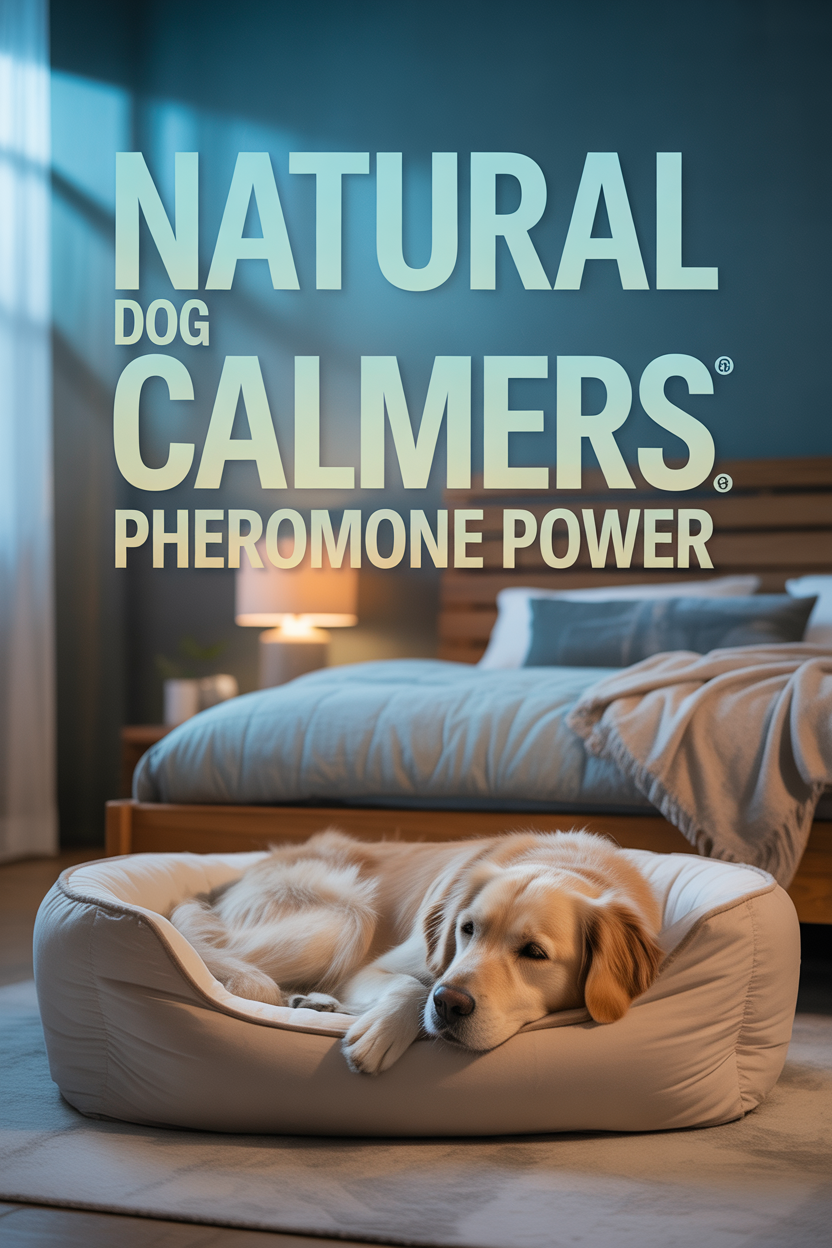
While not technically supplements you feed your dog, pheromone products are valuable tools in the anxiety management toolkit. These products mimic natural dog pheromones that communicate safety and security.
The most common type is Dog Appeasing Pheromone (DAP), a synthetic version of the comforting pheromone mother dogs produce. Available as room diffusers, sprays, and collars, these products can help with:
- Separation anxiety
- Fear of loud noises
- Adjustment to new environments
- Multi-pet household tensions
- Travel anxiety
Humans can’t detect these pheromones, but they provide a constant reassuring signal to your dog. They’re most effective when used alongside oral supplements for dogs with moderate to severe anxiety levels.
Supplement Forms: What Works Best for Your Dog
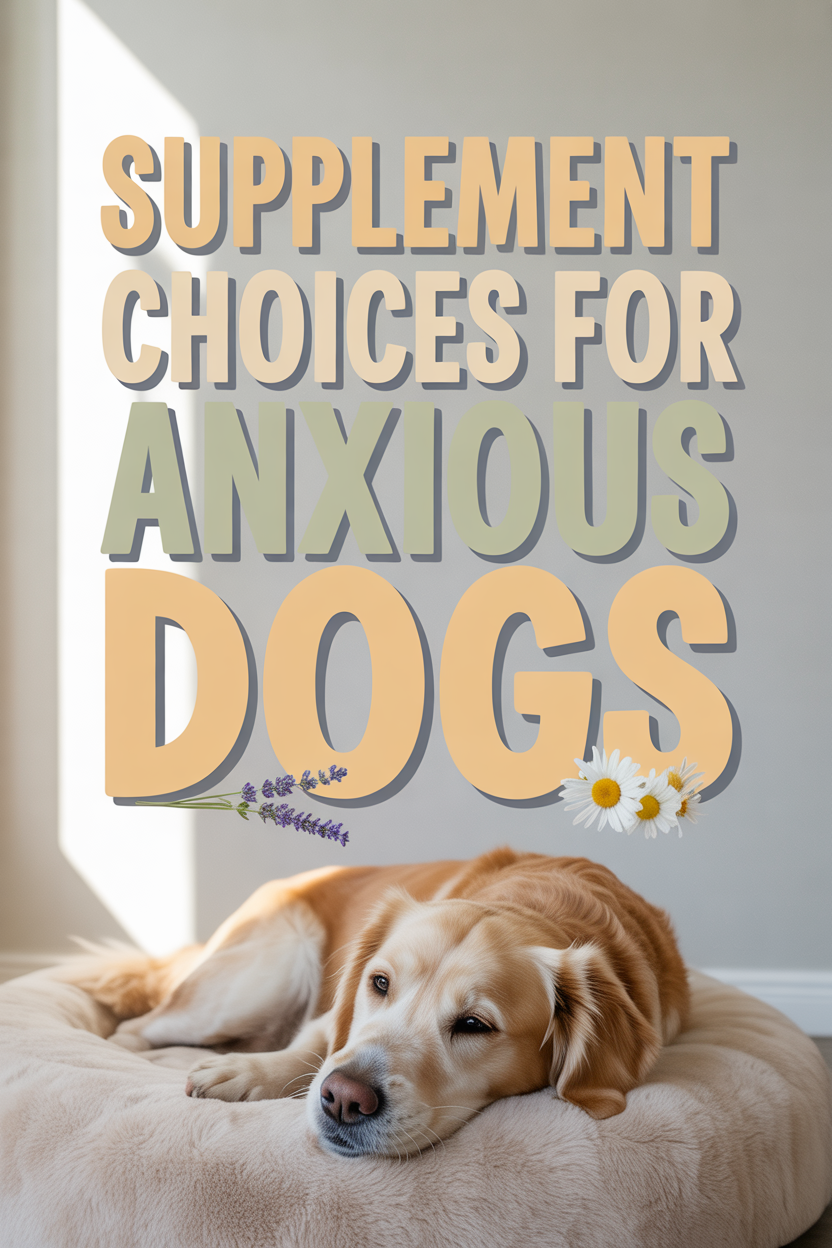
Anxiety supplements come in various forms to accommodate different dogs’ preferences:
- Soft chews: Treat-like supplements that most dogs readily accept
- Hard treats: Crunchy options for dogs who enjoy texture
- Powders: Can be mixed into food for picky dogs
- Liquids: Fast-absorbing options for rapid relief
- Tablets: More concentrated forms that may need to be disguised
- Oils: Allow for precise dosing and adjustments
Choosing the right form depends on your dog’s preferences, how quickly you need the supplement to work, and your comfort level with administration methods.
Matching Supplements to Your Dog’s Specific Anxiety Type
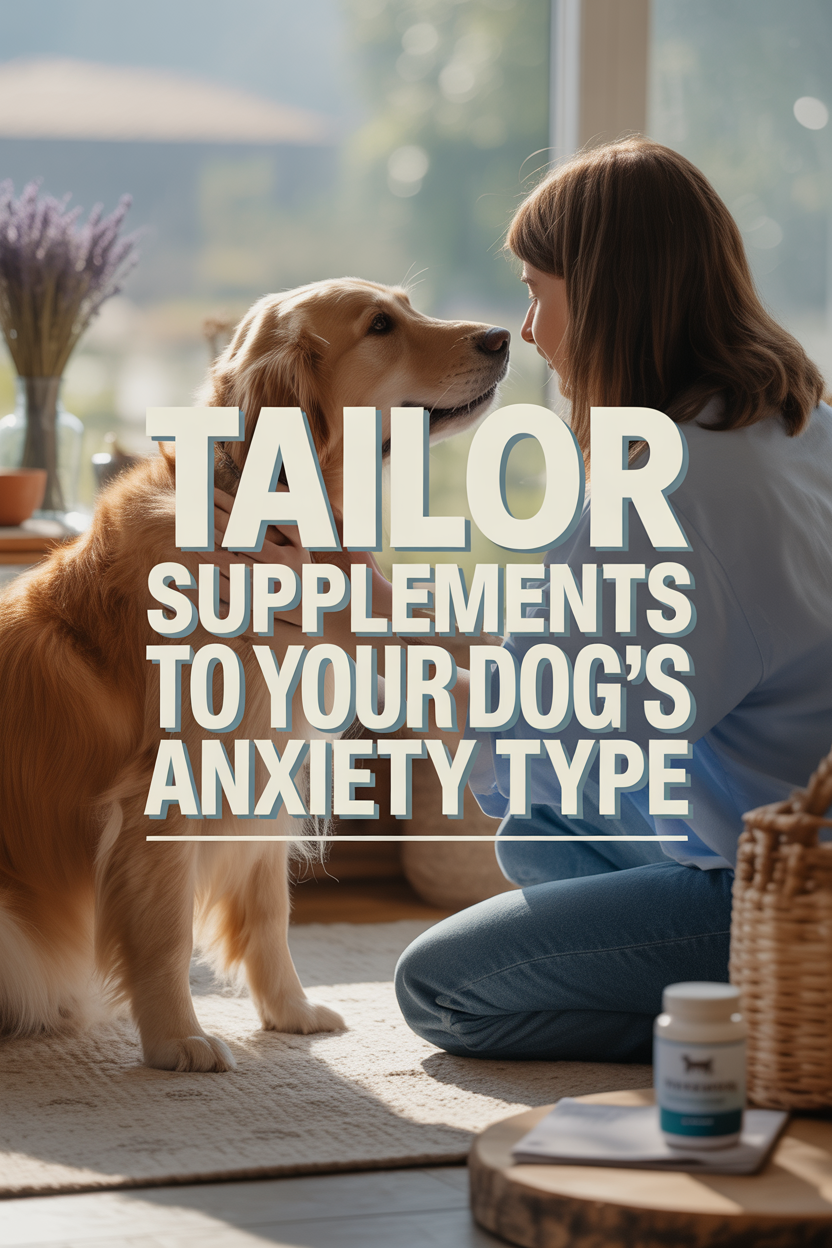
Different anxiety triggers often respond better to specific calming ingredients:
- Separation anxiety: L-Theanine, CBD, and pheromone products make an effective combination. Look for longer-lasting formulas to provide coverage throughout your absence.
- Noise phobias: Fast-acting combinations of CBD, tryptophan, and melatonin work well for thunderstorms and fireworks. Administer shortly before anticipated noise events.
- Travel anxiety: Ginger-containing formulas address both anxiety and motion sickness. Non-sedating options like L-Theanine keep your dog alert enough to enjoy the journey.
- General nervousness: Herbal blends with chamomile, valerian, and passionflower are ideal for dogs with ongoing baseline anxiety.
- Senior dog anxiety: Older dogs often benefit from supplements containing both calming ingredients and brain-supporting nutrients like omega-3s and antioxidants.
Mild anxiety cases might improve with simple single-ingredient supplements, while dogs with severe anxiety typically need comprehensive formulas with multiple active ingredients.
Safety Considerations and Potential Side Effects
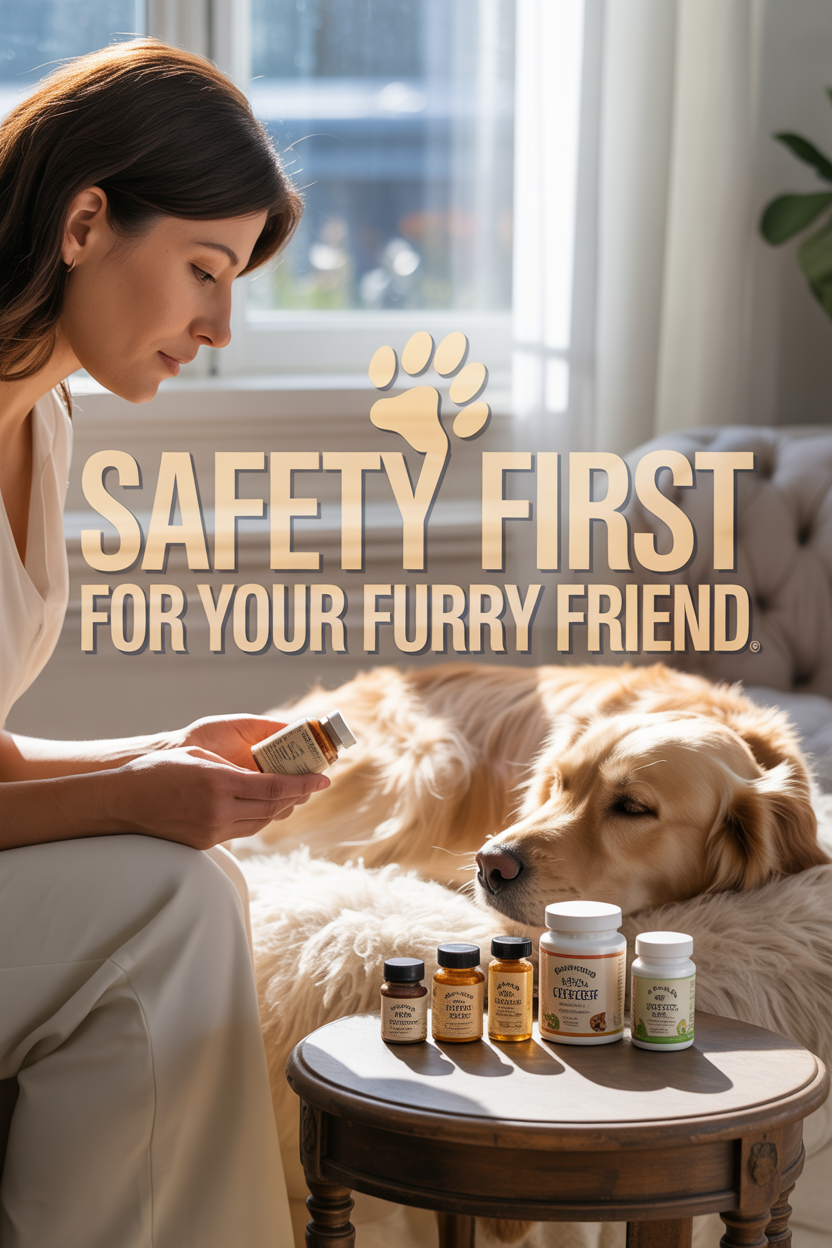
While natural supplements are generally safer than prescription medications, they still require careful consideration:
- Some herbs like valerian root may cause digestive upset in sensitive dogs
- Melatonin can cause drowsiness and isn’t recommended for pregnant dogs
- CBD might interact with certain medications
- L-Theanine could potentially lower blood pressure in very high doses
- Some calming treats contain fillers or artificial ingredients that could trigger allergies
Always start with the lowest recommended dose and monitor your dog closely. Watch for potential side effects including:
- Excessive drowsiness
- Digestive changes
- Altered drinking or urination patterns
- Allergic reactions
If you notice any concerning changes, discontinue the supplement and consult your veterinarian about alternatives.
When to Consult Your Veterinarian
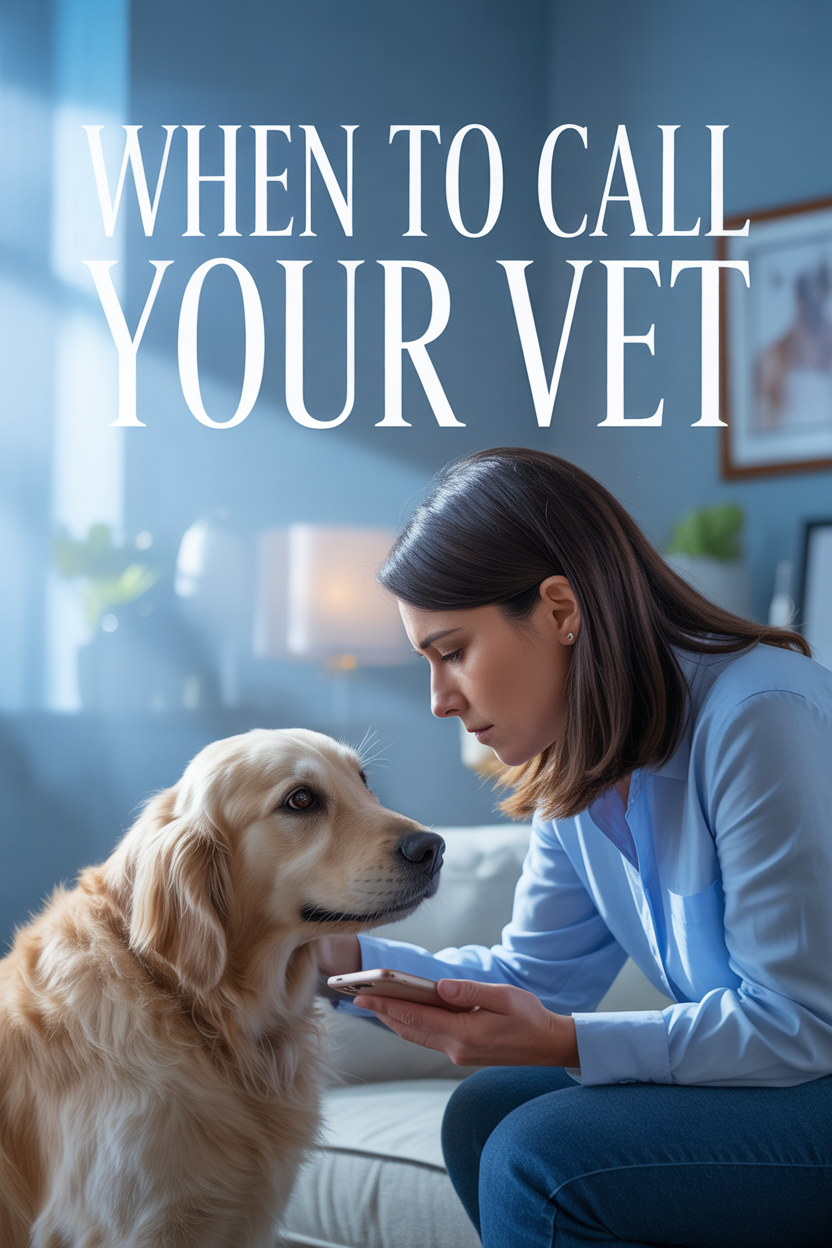
While many calming supplements don’t require a prescription, consulting with your veterinarian before starting them is advisable, especially if:
- Your dog takes other medications
- Your dog is pregnant or nursing
- Your dog is very young, elderly, or particularly small
- Your dog has liver or kidney issues
- Your dog’s anxiety developed suddenly
- You’re unsure whether symptoms indicate anxiety or a medical condition
Veterinarians can help rule out medical causes for your dog’s behavior and provide guidance on appropriate dosages for your specific pet. They may also discuss prescription options if your dog’s anxiety is severe enough to warrant more intensive intervention.
Combining Supplements with Behavioral Training

Supplements work best when paired with behavioral approaches for lasting results:
- Desensitization: Gradually exposing your dog to fear triggers at non-threatening levels
- Counterconditioning: Teaching your dog to associate scary stimuli with positive experiences
- Relaxation training: Teaching your dog to calm down on command
- Confidence building: Activities that boost your dog’s sense of security and capability
- Consistent routines: Predictable schedules reduce anxiety
- Environmental enrichment: Mental stimulation prevents boredom-related anxiety
Supplements create an optimal learning state where your dog is calm enough to benefit from training. They reduce the physiological stress response, making your dog more receptive to learning new coping skills.
Success Stories: Real Results with Calming Supplements

Max, a 7-year-old Labrador with severe thunderstorm phobia, used to hide trembling in the bathroom during storms. After starting on L-Theanine and CBD supplements, he now remains in the living room during storms with significantly reduced anxiety symptoms.
Bella, a 3-year-old rescue Chihuahua, suffered from extreme separation anxiety that led to destructive behavior and excessive vocalization. A combination of pheromone diffusers and tryptophan supplements, plus targeted training, transformed her into a calmer dog who can handle being alone for reasonable periods.
Cooper, a 10-year-old Beagle experiencing age-related anxiety with nighttime pacing and confusion, showed remarkable improvement with a senior-specific supplement containing melatonin and cognitive support ingredients. His sleep quality improved and his daytime anxiety decreased noticeably.
Finding the perfect calming solution for your dog might require some experimentation, but when you see your previously anxious pet calmly weathering situations that once caused panic, you’ll know your efforts were worthwhile. With the right combination of supplements, training, and patience, your anxious dog can discover their inner calm and enjoy a happier, more balanced life – and you’ll both benefit from the improvement!
